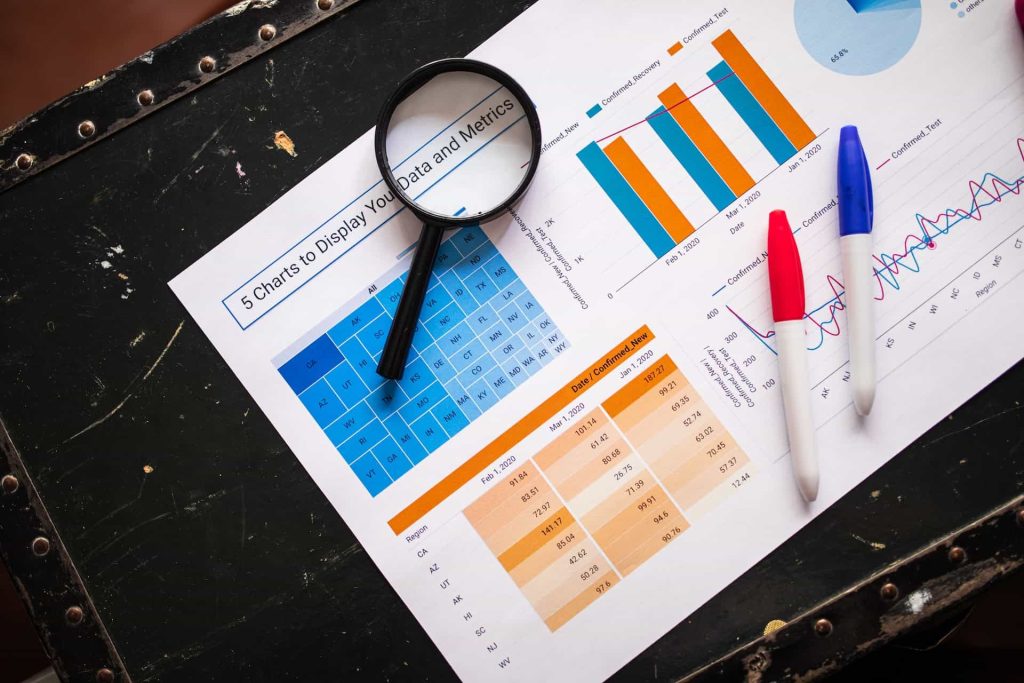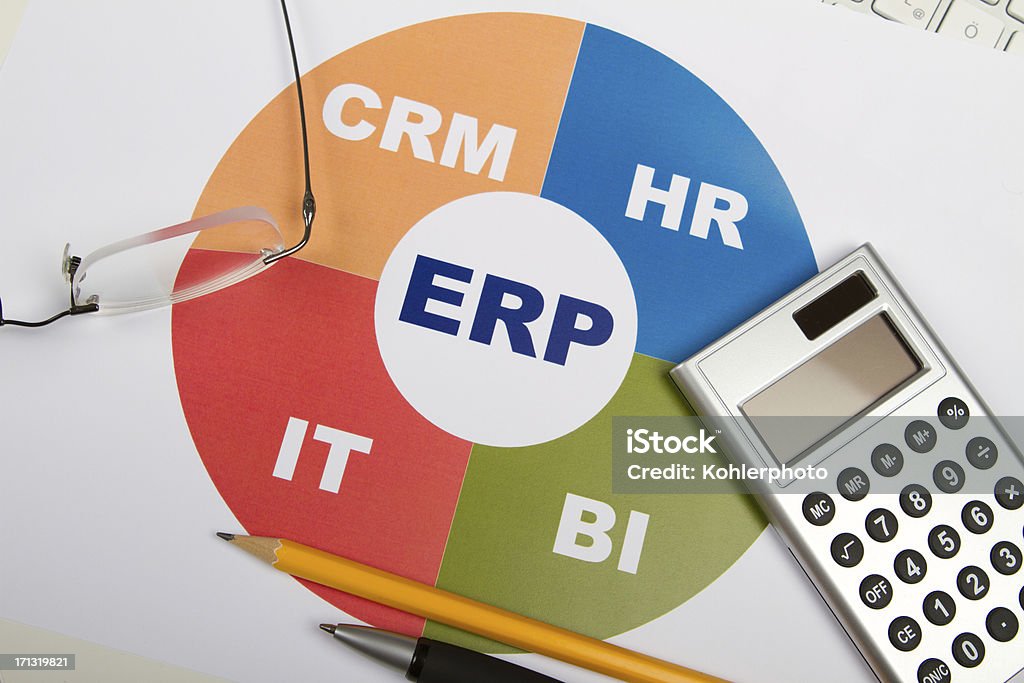In the ever-evolving world of business management, acronyms like ERP and CRM are thrown around quite often. But what do they really mean, and how do they impact your business? In this article, we will embark on a journey to demystify ERP and CRM, helping you understand the key differences and how they can benefit your organization. So, grab a cup of coffee, and let’s dive into the world of ERP vs CRM!

Understanding ERP and CRM
To get started, let’s clarify what ERP and CRM stand for. ERP stands for Enterprise Resource Planning, while CRM stands for Customer Relationship Management. Both are indispensable tools in the modern business landscape. While they might sound similar, they serve entirely different purposes.
What is ERP?
ERP, or Enterprise Resource Planning, is like the central nervous system of your company. It’s a comprehensive software system that allows different departments to share information and work together efficiently. It covers everything from finance and inventory to human resources and supply chain management.
Imagine your business as a symphony. ERP is the conductor, ensuring that every instrument, from the violins (finance) to the percussion (inventory), plays in harmony. It streamlines operations, making your business more efficient and agile.
What is CRM?
On the other hand, CRM, or Customer Relationship Management, focuses on your company’s relationships with its customers. It’s all about nurturing those relationships, understanding your customers’ needs, and keeping them happy.
If ERP is the conductor, then CRM is your front-row seat to the audience. It helps you engage with your customers on a personal level, managing interactions, sales leads, and customer service effectively.
The Key Differences
Now, let’s delve into the heart of the matter – the differences between ERP and CRM. While they both empower your business, they do so in distinctive ways.
ERP primarily handles internal processes. It streamlines your operations, optimizes resources, and improves decision-making. With ERP, you can manage your finances, monitor inventory, and oversee your entire supply chain.
CRM, on the other hand, is all about your customers. It’s your gateway to understanding their behavior and preferences, enhancing communication, and ultimately boosting sales. With CRM, you can track leads, manage customer support, and provide a personalized experience.
Integration and Interconnectivity
One common ground for ERP and CRM is integration. These systems can work together seamlessly, offering a comprehensive solution that combines internal efficiency and external customer satisfaction.
Imagine a car engine and its transmission. ERP is the engine, powering the car’s internal functions, while CRM is the transmission, ensuring smooth interaction with the road (your customers). Together, they create a well-oiled machine.
ERP vs CRM: The Showdown
Now that we’ve got a good grasp of what ERP and CRM are let’s put them in a head-to-head competition.
ERP is like the foundation of a sturdy building. It provides structure, stability, and supports all the essential functions. Without a solid foundation, the entire structure might crumble.
CRM, on the other hand, is the welcoming committee at the front door of your business. It’s the first point of contact with your customers and can significantly impact their perception of your brand.
So, it’s not a matter of ERP vs CRM, but more about understanding when and where to use each.
Who Needs ERP?
ERP is a game-changer for manufacturing, logistics, and any business with complex internal processes. If you need to streamline operations, manage resources efficiently, and make data-driven decisions, ERP is your best friend. Small or large, businesses can benefit from ERP’s prowess.
Who Needs CRM?
CRM, on the other hand, is indispensable for businesses that thrive on customer interactions, such as e-commerce, retail, and service industries. If you want to boost sales, enhance customer satisfaction, and build strong relationships, CRM is the way to go.
Pros and Cons of ERP
Let’s weigh the pros and cons of ERP to help you decide if it’s the right choice for your business.
Pros of ERP
- Efficiency Boost: ERP optimizes your internal processes, making your operations more efficient.
- Streamlined Information: It centralizes data, enabling better decision-making and smoother communication.
- Scalability: ERP systems can grow with your business, adapting to its changing needs.
Cons of ERP
- Implementation Costs: Setting up an ERP system can be expensive.
- Learning Curve: Training your team to use ERP effectively may take time.
- Complexity: Managing all your data in one place can be overwhelming if not done right.
Pros and Cons of CRM
Now, let’s evaluate the pros and cons of CRM to see if it’s the right fit for you.
Pros of CRM
- Customer Satisfaction: CRM helps you provide personalized services, enhancing customer satisfaction.
- Sales Growth: It improves your sales by tracking leads and managing customer relationships.
- Data Insights: CRM provides valuable data to understand your customer’s behavior.
Cons of CRM
- Cost: Implementing CRM can be pricey, especially for small businesses.
- Data Management: It requires careful data management to be effective.
- Customer Dependency: Relying too much on CRM can lead to issues if it ever fails.
Making the Choice: ERP or CRM?
So, here’s the million-dollar question: should you go with ERP or CRM? The answer lies in your specific business needs.
If you’re a manufacturing company looking to streamline your operations, ERP is the way to go. However, if you’re in retail and want to enhance customer relationships and boost sales, CRM is your best friend.
The good news is, that you don’t always have to choose between the two. Many businesses use both systems, ensuring a harmonious balance between internal efficiency and customer satisfaction.
Conclusion
In the world of ERP vs CRM, there’s no one-size-fits-all solution. Your choice depends on your business type, goals, and the problems you aim to solve. ERP streamlines internal processes, while CRM enhances customer relationships.
In the end, it’s like having a toolbox. You wouldn’t use a hammer to tighten a screw, nor would you use a screwdriver to drive a nail. Choose the tool that fits your task, and you’ll build a successful business that thrives.
But you might still have questions, so let’s address some common ones.
FAQs
Industries have their own needs, so choose a system that understands your industry’s secrets to success.
Well, they have some overlapping features, but generally, it’s best to have both. They complement each other to supercharge your business.
Absolutely! There are solutions out there for businesses of all sizes. Just choose ones that fit your needs and budget.
Sure! Think of them as different tools in your business toolbox – like finance, HR, inventory, and production tools to help you do your job.
Absolutely! ERP stars include SAP, Oracle ERP Cloud, and Microsoft Dynamics. For CRM, check out Salesforce, HubSpot, and Zoho CRM.
They come with security capes to keep your data safe. Make sure to set them up according to your privacy rules.
When they’re integrated, your CRM can share vital customer data with the ERP, so you can make informed decisions and manage resources better.
CRM systems bring magic to your sales, marketing, and customer service with features like contact management, sales automation, and marketing magic!
You get the ultimate power couple! It improves your business efficiency and keeps customers smiling by providing a 360-degree view.
Think about your business goals, budget, existing tech, and what each department needs to make the right choice.
ERP (Enterprise Resource Planning) is like the behind-the-scenes star, managing internal operations, while CRM (Customer Relationship Management) takes care of customer interactions and relationships.
CRM systems are your go-to for nurturing customer relationships, managing sales, and making your customers feel extra special.
It depends on your business needs. ERP might be expensive upfront but offers long-term efficiency gains. CRM can be more cost-effective for businesses focused on boosting.
ERP shines in departments like finance, procurement, and manufacturing, making them the real heroes behind the scenes.
Sales, marketing, and customer service teams are the superheroes of CRM, using it to win the day and make customers happy.
Businesses use ERP systems to help organize their day-to-day operations, like inventory, finances, and production, making sure everything runs smoothly.
